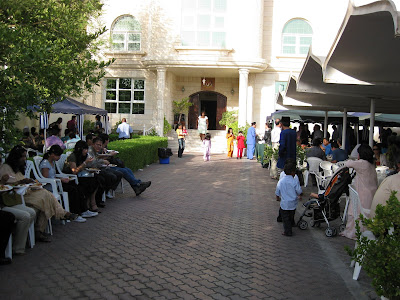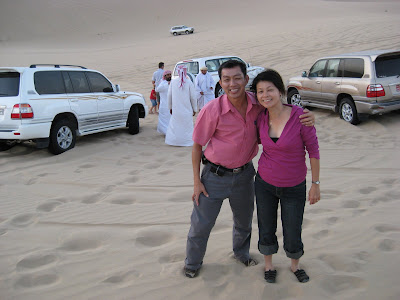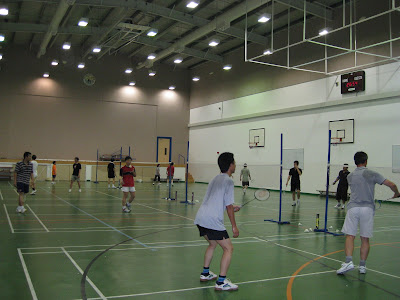Zi-Zenn: Why are we suddenly sending 49 MPs for a study tour to Taiwan of all places? Are they going to study first hand how the ex-president squandered and laundered the nation’s money? Don’t they have more sensible things to do? Or have they forgotten their pledge to serve the rakyat?
This is an incredible move on the part of our seemingly mentally unstable if not near insane government. It’s the magnitude of inaptitude compounded by sheer propensity that is simply beyond comprehension.
The whole government machinery seems to be collapsing. While the people hunger for solutions to the soaring inflation and worsening unemployment, their elected representatives choose to fly away en bloc on public expense.
Is ours a despotic or deranged nation? All signs point to a resounding ‘yes’.
Arianna: Carrots await BN MPs on Taiwan agri tour’. That should have been the headlines. And if the Anti-Corruption Agency has any brains, it should start investigations into this so-called study tour. Any way one looks at it, it smells rotten.
The majority of us may not be products of Oxford but even a farmer can see the ruse behind the intent. No matter what Prime Minister Abdullah Badawi and his deputy, Najib Tun Razak say about the trip, Malaysians know it was done to foil Anwar Ibrahim's September 16 plan to form a new federal government.
Never mind Sept 16. I want to know where the money for the trip came from. It has corruption written all over it.
Don’t talk to me, a Sabahan, about democracy and respecting the mandate of the people. You Umno and BN, yes, I am talking to you. Did you not set the precedent way back in 1994 in Sabah? Remember the coup d'etat? We in Sabah did not give the mandate to BN to form the state government but the Umno-led BN staged a coup d'etat that forced then opposition Parti Bersatu Sabah out of office.
But lo and behold, what goes around comes around. Now you Umno/BN leaders, know exactly how we, the rakyat, felt when you ignored our mandate, lured some unprincipled and mercenary MPs so that you could rule Sabah.
Now, it's your turn to cry.
Tim Finian: Bon voyage Bung. There's always a possibility of returning to find that your country has changed hands and you are without a job.
So, if I were you, I'd keep a level head with my feet planted firmly on the ground and not enjoy myself too much. You never know what's in store.
ChanCK: A lot of events happening these days are very coincidental.
Do we need 49 ministers to learn agriculture technology at this time? Since this is an agriculture boot camp, shouldn’t our agriculture minister and his deputy minister go on the trip, along with a handful of agriculture officers? This would have been cheaper than sending 49 ministers.
Furthermore, are the other 47 ministers so free as to attend this great agriculture boot camp? Haven’t they got more important things to attend to at their own ministries ?
JTB: A study trip to educate our members of parliament is certainly a good idea. Okay, so you have detractors saying that Barisan National is so afraid of its MPs crossing over to Pakatan Rakyaat that it is taking them out of the country. Whatever the reason, the fact remains that BN has been spooked by Anwar Ibrahim.
However, that is not my point. I am disappointed with the insensitivity of Tiong King Sing, the chairman of the Backbenchers Club. I find it highly offensive that Tiong has not taken into account that it is the month of Ramadan and most of our Umno Muslim members of parliament are supposed to be fasting. This is an appropriate time for them to contemplate and reflect on their deeds, not go gallivanting overseas.
Tiong is an East Malaysian and I do not know if he realises that Sept 16 is Malaysia Day, when Sabah and Sarawak joined the Federation. Tiong, do you not think this is a valid reason for you to be with your fellow rakyat in East Malaysia to commemorate this event instead of being a tour leader in Taiwan?
From your actions, it seems that you subscribe to the BN notion that Malaysia Day is not that important. If that is the case, say so, get out of East Malaysia and move to West Malaysia.
YUMCIOUS: Of all places in the world, why Taiwan? If you really want to learn agriculture, you should visit Israel and see how they manage to cultivate great products under the most hostile environment on earth. Oh wait, we have no diplomatic relations with the Zionists.
Perhaps these 49 MPs are there also to visit their Legislative Yuan to learn how to throw punches and have cat-fights? Isn’t that what Taiwanese representatives are famous for? Oh wait, we have no official diplomatic relations with the Taiwanese either.
Oh, I give up.
 Christmas decoration at Lulu Hypermarket in Al Wahda Mall.
Christmas decoration at Lulu Hypermarket in Al Wahda Mall. In front of Al Wahda Mall shopping mall
In front of Al Wahda Mall shopping mall Me, in front of the Malaysian Embassy during the Hari Raya Haji open house
Me, in front of the Malaysian Embassy during the Hari Raya Haji open house
 Raining in Reem Island, Abu Dhabi.
Raining in Reem Island, Abu Dhabi.



























































